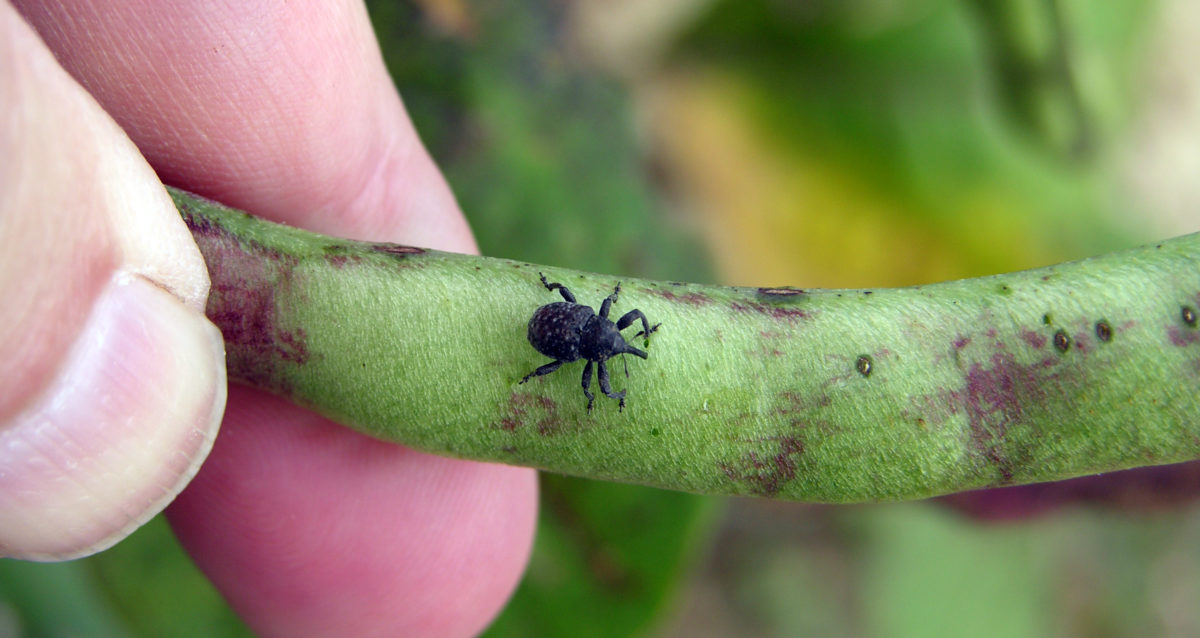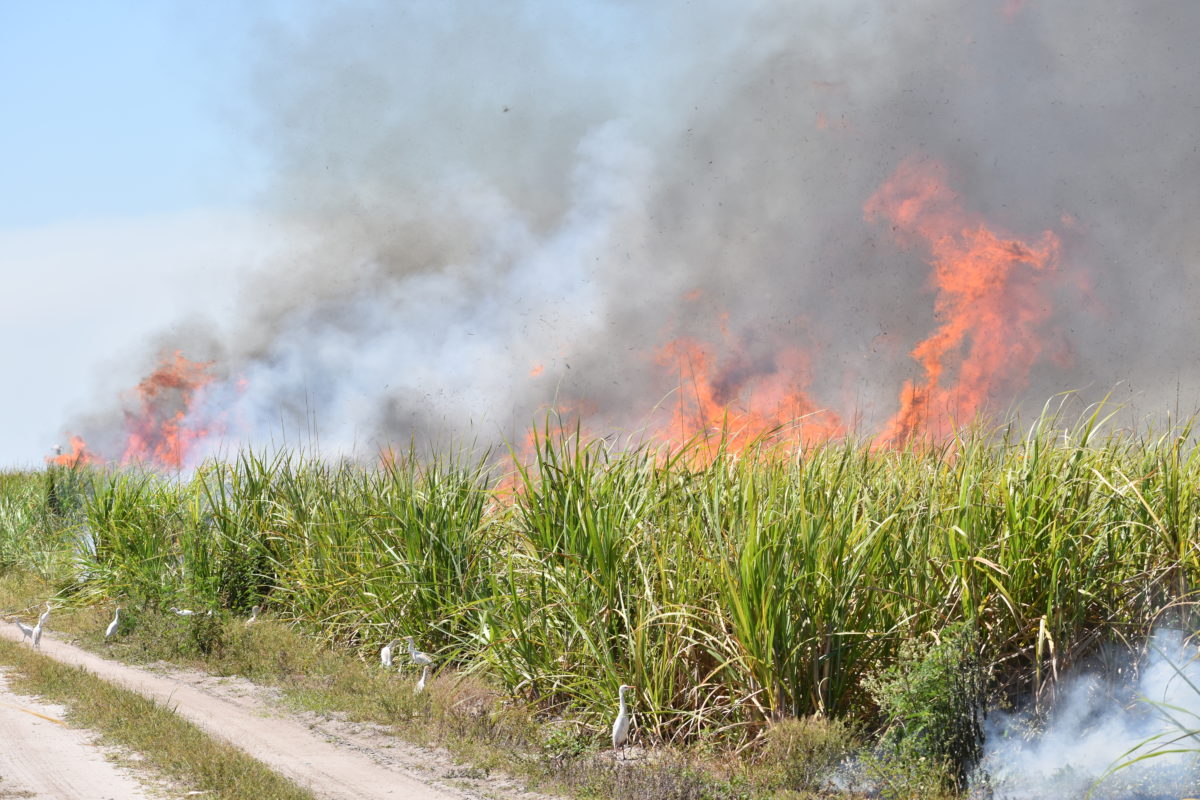According to UF/IFAS, Asian bean thrips (ABT) populations continue to swing back and forth across the South Florida region. While flower thrips are the predominant species north of Miami-Dade, a few locations still are reporting ABT at the dominant species. ABT populations ranged from 0.2 to 0.7 per bloom in southeastern Hendry County. Populations were reduced where records of 10 …
Managing Cowpea Curculio
Another southern pea season means one thing for Alabama producers; cowpea curculio will be a factor. “If you’re a southern pea grower, odds are you have seen this insect or will see this insect at some point in the production cycle,” said Neil Kelly, Alabama Extension Regional agent in Southeast Alabama. “Over the last several years, it has become devastating …
AFBF Advocating Vaccines for Farm Workers
Last year it was ensuring worker safety in the early stage of the coronavirus pandemic. This year, the focus is making sure workers have access to vaccines. It’s a tale of two seasons but one constant remains – COVID-19, says Allison Crittenden, Director of Congressional Relations at the American Farm Bureau Federation (AFBF). “I think if you zoom out to …
Representative Response: Austin Scott, Darren Soto Pen Letter to ITC
WASHINGTON, D.C. – Reps. Austin Scott (R-GA-08) and Darren Soto (D-FL-09) co-led a bipartisan letter to the International Trade Commission (ITC) on Tuesday expressing support for a Section 332 investigation for cucumbers and squash as American specialty crop producers struggle with unfair trade practices that negatively impact operations. “Seasonal cucumber and squash imports from Mexico continue to dramatically impact U.S. …
Taste Test: UF Scientists Use AI to Develop Better Tasting Strawberries
Source: UF/IFAS A $300 million-a-year industry in Florida may soon depend on artificial intelligence (AI) to enhance its flavor. Research at the University of Florida (UF) shows AI can help scientists breed more flavor into strawberries. While consumer panels are the method for UF researchers to gauge whether new fruit varieties taste good enough for development into market, in …
Florida Legislator: House Bill 1601 a Dangerous Piece of Legislation
One Florida state legislator deems House Bill 1601 a “dangerous piece of legislation.” Another accuses “Big Sugar” of attempting to “change the rules” in the middle of the game. The bill that is likely to see the House in the next couple of weeks has drawn the ire of Florida State Representatives Anna Eskamani and Omari Hardy. Also known as …
Voice of Leadership: Congressman Scott Sounds Off on Mexican Imports
How can you stay in business by selling a commodity for less than the inputs required to produce it? While it may sound like simple economics, it’s a financial game that’s just not adding up for many Southeast vegetable and specialty crop producers? What’s the ‘X’ factor? Imports from foreign countries like Mexico, Peru and Chile. If they continue to …
Chill Effect: Cold Temperatures Impact North Alabama Crops
Cold temperatures provided a scare for vegetable and fruit producers in north Alabama last weekend. They were especially concerning for peach farmers, said Eric Schavey, Alabama Regional Extension agent in Northeast Alabama. “We’re probably taking a little bit of a hit. But growers often leave more than they should at times. Maybe it’s just a little natural thinning, because we …
Georgia Fruit Crops Impacted by Cold Temperatures
South Georgia vegetables were not the only crops vulnerable to last weekend’s chilly temperatures. Fruit in middle and north Georgia were subjected to even colder temperatures. University of Georgia Cooperative Extension Fruit Disease Specialist Phil Brannen is concerned about the state’s grape, apple and peach crops. “I think there will be some significant damage on grapes, anything that was advanced. …
Muscadine Grape: Key to Sustainable Florida Viticulture
By Manjul Dutt and Ali Sarkhosh Native to Florida and the southeastern United States, the muscadine grape (Vitis rotundifolia) is a lesser known relative of the European grape (descended from Vitis vinifera) that is popular worldwide for fruit consumption and wine production. A related species (Vitis munsoniana/Vitis rotundifolia var. munsoniana) is commonly present in the central and southern parts of …











